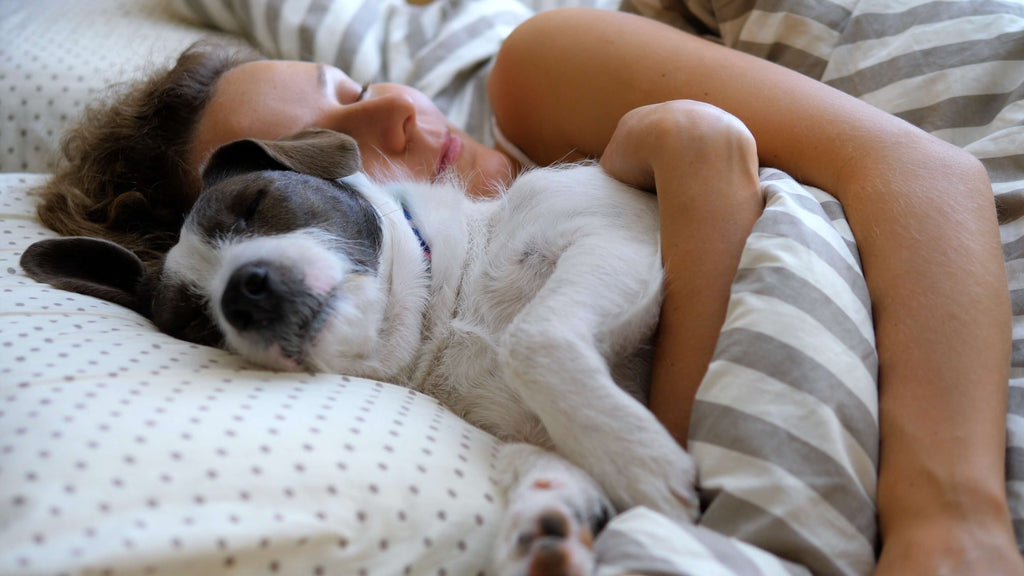
Coronavirus and your Pet, what's Important to Know

You can continue to cuddle with your pup
You Probably Can't get Coronavirus from you Pet
The coronavirus that causes the latest human epidemic, SARS-CoV-19, most likely originated in bats before mutating to infect other animals or humans. Besides being the only mammal that can fly, bats have a unique physiology that allows many types of viruses to live and reproduce in their bodies without causing illness. This makes bats a perfect petri dish for mammalian viral evolution. We believe many serious human viruses such as Ebola or the Nipah virus began in bats, mutated to infect another animal, and eventually jumped to people. Let’s get back to coronavirus in pets. In general terms, viruses are species-specific. That means the novel coronavirus we’re dealing with now is specific to humans, not other animals unless it mutates. So how did the Hong Kong dog test positive? Most likely it was the result of virus in the environment that ended up on the lining of its mucus membranes. In other words, the humans it lived with were shedding the virus and the dog was unlucky enough to inhale or ingest it. The great news is the dog didn’t develop any signs of illness, indicating Covid-19 remains a human infection. This means the human coronavirus virus isn’t living and replicating in a pet’s body, amplifying it’s spread. If a dog or cat encounters or carries SARS-CoV-19, it’s strictly an accident.Minimal Risk
Accident or not, there remains a minimal risk that a dog or cat’s fur or skin could serve as a mechanical vector for Covid-19 transmission, much the same way a door handle or handshake can spread infection. Bathing your pet frequently is recommended if anyone in your home contracts Covid-19, after public outings during an outbreak, or if you suspect contact with anyone ill. Until there is clear scientific evidence that dogs or cats can contract Covid-19, I’m going to continue snuggling with my pets all night long. I’ll probably be a little more cautious about any public places we visit during this outbreak and bathe them more often, but that’s about it. And please skip the pet facemasks, no matter what cute pictures you see on social media. Forcing a facemask on your pet will only stress them out, and that’s never cute. If you have any questions or concerns about your pet’s health or coronavirus infection, be sure to ask your veterinarian. This is an ongoing and rapidly evolving issue, so stay tuned to national and local health agencies for the latest information and advice.
Category_Dog Blog
The Vet's Corner






































